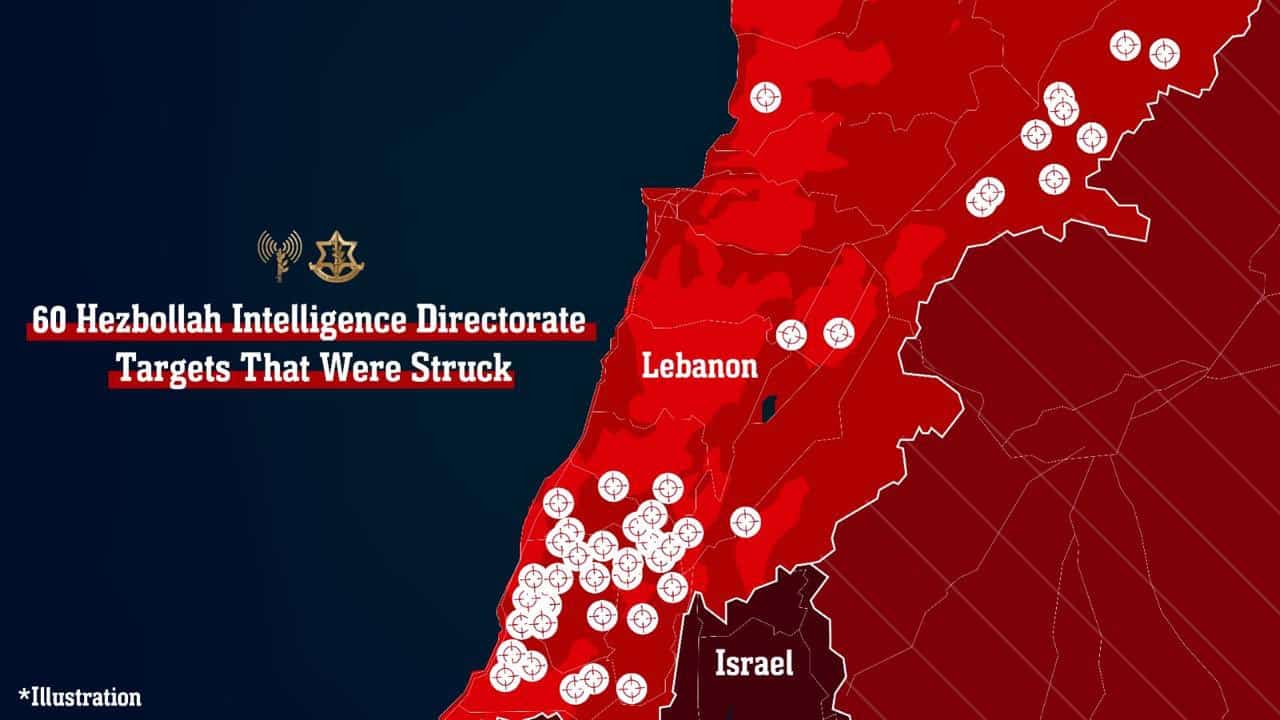In the past 24 hours, significant military actions have been reported between Israel and groups based in Lebanon, as well as an attack claimed by Iran-backed militias from Iraq. A drone strike was launched toward an Israeli port, and Hezbollah fired a missile deep into Israeli territory, which prompted a series of retaliatory airstrikes by the Israeli military. These developments have led to rising tensions and a growing humanitarian crisis in the region.
The Past 24 Hours: Major Events and Military Actions
Earlier today, the Islamic Resistance in Iraq, a coalition of Iran-backed militias, claimed responsibility for a drone attack targeting Israel’s southern port of Eilat. The group stated that the action was carried out in support of Palestinians and Lebanese civilians. While Israel has not officially confirmed the source of the drone, the Israeli military indicated that the drones approached “from the east.”
Footage from this evening shows the moment an explosive-laden drone struck Eilat.
The attack, carried out by the Iran-backed Islamic Resistance in Iraq, involved two drones.
One was intercepted by an Israeli Navy Sa’ar 5-class corvette, while the second drone hit Eilat port,… https://t.co/ojNMeMsZx3 pic.twitter.com/jswkiINvpk
— Open Source Intel (@Osint613) September 25, 2024
Hezbollah launched a missile toward Tel Aviv from southern Lebanon, marking the first time the militant group targeted Israel’s central economic hub. The missile, identified as a Qadr 1 ballistic missile, was intercepted by the Israeli Defense Forces (IDF) before reaching the city. This represented a significant escalation in Hezbollah’s operations, extending its reach deeper into Israel than in previous incidents.
In response, the Israeli Air Force conducted over 250 airstrikes across Lebanon today, targeting multiple Hezbollah-linked sites. Of these, 70 strikes specifically targeted locations connected to Hezbollah’s Intelligence Directorate, significantly impacting the organization’s ability to collect and analyze intelligence on Israel. According to Israeli military sources, these strikes were intended to degrade Hezbollah’s operational capabilities and disrupt their intelligence-gathering network. Overall, Israeli strikes in recent days have killed over 600 individuals in Lebanon, with the death toll continuing to rise.
60 Hezbollah Intelligence Directorate targets were struck by the IAF.
The strikes eliminated intelligence-gathering tools, command centers, and additional infrastructure used by the terrorist army to build an intelligence situational assessment.
Here you can see all the… pic.twitter.com/Vzhv5JzsR5
— Israel Defense Forces (@IDF) September 25, 2024
The Current Situation: Military Preparations and Displacement
The Israeli military is currently preparing for a potential ground operation in Lebanon. Lt. Gen. Herzi Halevi, Chief of Staff of the Israeli Defense Forces, stated that recent airstrikes were aimed at preparing the ground for a possible incursion and at degrading Hezbollah’s operational capabilities. Israel has also called up two reserve brigades to the northern border.
Simultaneously, there has been a large-scale displacement of civilians, with thousands of Lebanese and Syrian residents crossing the border into Syria. The United Nations High Commissioner for Refugees (UNHCR) reports that many have fled without a specific plan, highlighting the urgency of the situation. Lebanon’s foreign minister indicated that the number of displaced persons might be approaching half a million, as Israeli airstrikes have expanded across various regions in Lebanon.
Iran, a key supporter of Hezbollah, has condemned Israel’s recent actions, with Supreme Leader Ayatollah Ali Khamenei emphasizing Hezbollah’s resilience and strength. There are growing concerns that Iran might be drawn more directly into the conflict, which could trigger broader regional involvement, including potential U.S. engagement.
The U.N. Security Council is scheduled to meet to discuss the crisis, as diplomatic efforts continue to prevent further escalation. U.S. President Joe Biden stated that while the possibility of “all-out war” in the Middle East exists, there is still an opportunity for a diplomatic resolution that could de-escalate tensions and prevent a broader conflict
Expanded Coverage:






